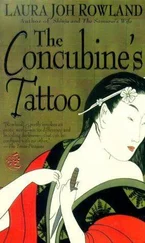“Certainly,” Jozan said, daunted but game.
Sano addressed Lady Ejima: “Can you think of anyone else who could have touched your husband?” She shook her head. Sano didn’t fail to note that she and Jozan had spent time alone with Ejima and had had the best opportunity to touch him. “Did any of the people Ejima saw have any reason to want him dead?” Sano asked them both.
Jozan’s expression turned dubious; he clearly didn’t want to accuse important officials. “Not that I know of.”
“I want the metsuke records on everyone who’s been executed, demoted, exiled, or otherwise harmed as a result of investigations by Ejima since he became chief. Get them to my office today.”
Jozan hesitated; the metsuke was loath to turn over confidential documents, share secrets, and diminish their unique power. But he couldn’t refuse an order from the shogun’s second-in-command. “Certainly.”
And Sano thought him smart enough to realize he was a suspect and it would behoove him to cast suspicion elsewhere. Sano foresaw much tedious work investigating people who’d had contact with Ejima or grudges against him. Fortunately, he could delegate much of it.
“I must borrow your records,” he told Jozan, who nodded. Upon taking a second look at them, he recognized many names. One jumped out at him: Captain Nakai, a soldier in the Tokugawa army. Nakai had fought for Lord Matsudaira during the faction war. Sano recalled that he was a star martial artist who’d distinguished himself by killing forty-eight enemy troops. And he’d had a private appointment with Ejima.
Outside on the street, after thanking Jozan and Lady Ejima for their cooperation, Sano said to his detectives, “The officials who were at the banquet all live here in Hibiya or inside the castle. I’ll drop in on them, then go to metsuke headquarters to talk to Ejima’s subordinates. Marume-sanand Fukida-san, you’ll come with me. In the meantime-” He handed the record book to another aide, a young samurai named Tachibana, also a former detective. “You and the others round up these men who had private appointments with Ejima and send them to my estate.” Another advantage to being chamberlain was that almost everybody’s presence was Sano’s to command. He would save the informants for later. “Make Captain Nakai your top priority.”
“Yes, Honorable Chamberlain,” Tachibana said, eager to prove his worth.
As Sano rode off with Marume and Fukida, he felt elated that his investigation was making progress. Maybe he could solve the case and appease Lord Matsudaira and the opposition before war broke out. But he wondered uneasily whether Hirata would hold up long enough to investigate previous murders. And Sano wondered what Reiko was doing.
The hinin settlement where Yugao and her family had lived was a slum that infested the bank of the Kanda River, northwest of Edo Castle. Tents made of tattered cloth and bamboo poles, inhabited by recent arrivals, surrounded a village of hovels built from scrap wood. A wasteland occupied by a vast garbage dump separated the settlement from a rundown neighborhood of houses and shops on the outskirts of Edo proper. Smoke rose from within the settlement, darkening the sky and sun. A procession that consisted of four samurai, a palanquin, and its bearers halted near the dump.
Reiko climbed out of the palanquin. As she looked around, her face flinched at the stink of the garbage heaps where buzzing flies swarmed and children, rats, and stray dogs foraged. But curiosity stirred within her. She’d seen hinin settlements but never been in one; polite custom kept ladies of her class out of them as strictly as the law divided the outcasts from the rest of society. Eager to explore and learn whatever she could here about Yugao and the murders, Reiko started across the weedy, muddy ground toward the settlement. She gathered her plain gray cotton cloak around her. She wore straw sandals instead of her usual clogs made of lacquered wood. Her hair was done in a simple knot with no ornaments, her face adorned with minimal powder and rouge. Her guards wore swords and armor tunics, but no crests to signify who their master was. Reiko intended their mission to be as covert as possible, thus keeping her promise to Sano.
Voices raucous with laughter and argument resounded from the tents as Reiko neared the settlement. Outcasts, mainly men, loitered around campfires where rotting fish sizzled in rancid grease. Five of the men hastened toward Reiko’s party. They wore tattered short kimonos and leggings, with clubs and daggers at their waists. They had shaggy hair, grime ingrained in their skin, and hostile faces.
“What do you want?” one of the men said to Reiko’s guards. His arms were covered with tattoos, the mark of gangsters. He and his companions blocked the path.
“Greetings,” Reiko’s chief escort said politely. He was Lieutenant Asukai, a tough young samurai who would have ordinarily told these ruffians to step aside, and dispersed them by force if necessary. But Reiko had ordered him and the others to be discreet. “My master’s lady wants to talk to a few people here.”
The tattooed man scowled. “Sure, and I’m His Excellency the shogun. You samurai come here to pick on us hinin. You think you can kill us just because the law lets you get away with it.” Reiko realized that this must be a common problem for the outcasts. “Well, not today.” He and his men drew their daggers. Other outcasts emerged from the tents, brandishing clubs, spears. “Get lost.”
“Wait.” Lieutenant Asukai raised his hands in a placating gesture while his comrades clustered protectively around Reiko. “We’re not here to make trouble. We just want to talk.” His manner was calm, but although he and his comrades were trained, expert fighters and the outcasts were unskilled thugs, they were outnumbered. Reiko felt a pang of fear. She’d been caught in fights before, and she didn’t want to repeat the experience.
“I said, get lost.” The tattooed leader spoke with the brazen air of a man who was angry at the world and hadn’t much to lose. “Go, or die.”
The other outcasts echoed him with savage, enthusiastic roars. They didn’t wait to see if Reiko and her guards would leave, but quickly surrounded them. Blades pointed toward Reiko; clubs rose to strike; faces avid for a fight stared down her guards. Metal rasped as the guards drew their swords. People hurried from the dump and the settlement to watch. Dismay filled Reiko because her investigation had barely begun, and already she’d landed in trouble.
A loud, authoritative male voice demanded, “What’s going on here?”
The outcasts turned toward the settlement. Their circle loosened, and Reiko saw a man, followed by two others, striding toward her. Perhaps forty years of age, he had surly yet handsome features shadowed by whisker stubble; he carried a spear upraised in his fist. His kimono, trousers, and surcoat had the same grimy look as the other outcasts’ clothing, but were made of silk. His hair was combed and oiled into a neat topknot. He had the noble bearing of a samurai, even though his crown wasn’t shaved and he wore no swords. His men resembled the other outcasts; they were clearly commoners. He halted and panned his dark gaze over the crowd.
“We’re just trying to get rid of these trespassers before they hurt somebody,” said the tattooed ruffian.
The man studied Reiko’s party with suspicion. “I’m Kanai Juzaemon, the headman of this village.” Everyone in society was regimented and every neighborhood had its appointed official, no less the hinin settlement. His two names identified Kanai as a member of the warrior class. “Who are you?”
Lieutenant Asukai muttered to Reiko, “Maybe we’d better tell the truth.”
Читать дальше












